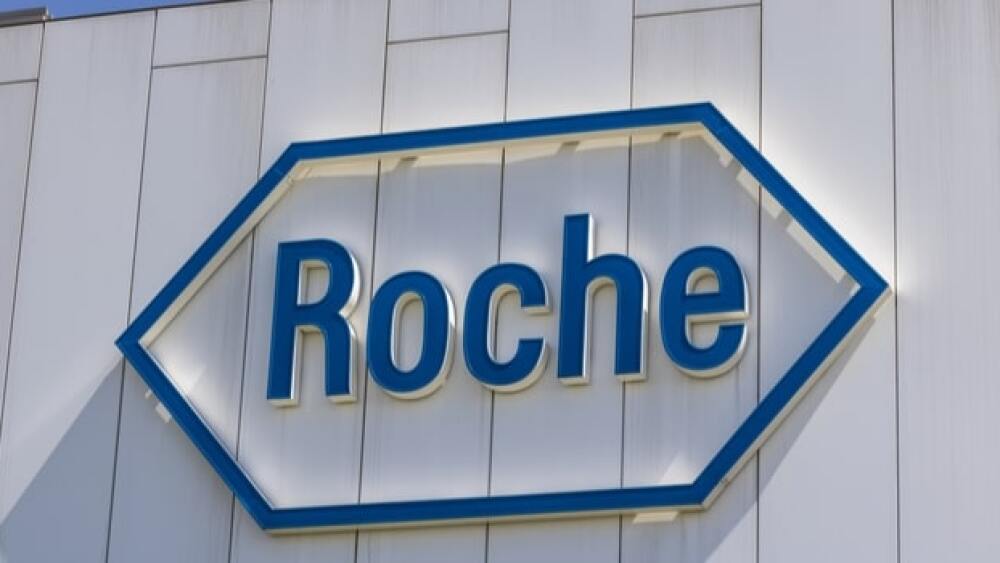Roche is closing out its fourth-quarter with some house cleaning. The Swiss pharma giant announced in its earnings report that it was terminating studies of several mid- and late-stage assets, including two late-stage breast cancer programs.
Jonathan Weiss / Shutterstock
Roche is closing out its fourth-quarter with some house cleaning. The Swiss pharma giant announced in its earnings report that it was terminating studies of several mid- and late-stage assets, including two late-stage breast cancer programs.
In its fourth-quarter presentation, Roche noted several programs that have been terminated after earlier clinical trial failures in 2020. Roche included a checklist for ongoing programs and the ones that have been terminated included a large, red X. One of the studies terminated is the Phase III IMagyn050 trial assessing a combination of two previously approved cancer drugs. The study was seeking to determine if adding Tecentriq (atezolizumab) to a combination of Avastin (bevacizumab), paclitaxel and carboplatin would make a difference in the treatment of women with newly diagnosed advanced-stage ovarian cancer. It did not. The addition of Tecentriq did not improve progression-free survival to the first-line combination therapy.
Another program terminated is the Phase III IPATunity130 study. That trial was assessing ipatasertib, an Akt inhibitor, and chemotherapy for the treatment of patients with PIK3CA/AKT1/PTEN-altered hormone receptor-positive, HER2-negative advanced breast cancer. The trial failed to meet its endpoints of both progression-free survival and objective response rate. AKT1/2/3, which ipatasertib inhibits, is the central node of the PI3K/AKT pathway, which plays a critical role in HR-positive, HER2-negative breast cancer. Although ipatasertib missed the mark in the breast cancer study, Roche is still investigating its use in other cancers. Last year, the asset hit the mark in the Phase III IPATential150 study in patients with metastatic castration-resistant prostate cancer whose tumors had PTEN loss. Ipatasertib in combination with abiraterone and prednisone/prednisolone provided a statistically significant reduction in the risk of disease worsening or death, the company said at the time.
The other Phase III program culled by Roche is a combination of idasanutlin, an MDM2 antagonist, and chemotherapy for the treatment of acute myeloid leukemia. The combination failed to reach endpoints of improving survival in the late-stage MIRROS program. Roche had hoped to determine if the addition of idasanutlin to chemotherapy would prove superior to chemotherapy alone. The addition of the MDM2 antagonist did not prolong life in those patients. Although idasanutlin failed in the MIRROS trial, Roche and Genentech are investigating it along with Venclexta in patients with relapsed or refractory AML who are not eligible for chemotherapy.
It wasn’t just late-stage programs that saw the proverbial axe. Roche also terminated two mid-stage programs in ulcerative colitis and autism spectrum disorder. Roche subsidiary Genentech reported etrolizumab demonstrated a mixed bag in a Phase III ulcerative colitis test. While the drug hit its endpoint of inducing remission versus placebo, it failed to meet its primary endpoint versus placebo as maintenance therapy in people with ulcerative colitis.
The autism study that Roche terminated involved an asset that received Breakthrough Therapy designation in 2018. Last year, Roche announced it was terminating the trial assessing balovaptan, a vasopressin 1a (V1a) receptor antagonist. Roche stopped the Phase II study of balovaptan early last year following a futility assessment.
In its fourth-quarter report, Roche said sales in its Pharmaceuticals Division decreased 2% to CHF 44.5 billion, mainly due to stronger than expected biosimilars competition and the COVID-19 pandemic. Sales in the U.S. slipped 6%. Roche said biosimilars for blue-chip assets MabThera/Rituxan, Herceptin and Avastin were particularly impacted by biosimilars. Tecentriq sales increased mainly due to growth in the new indications, including certain forms of lung, breast and liver cancer, the company said.





